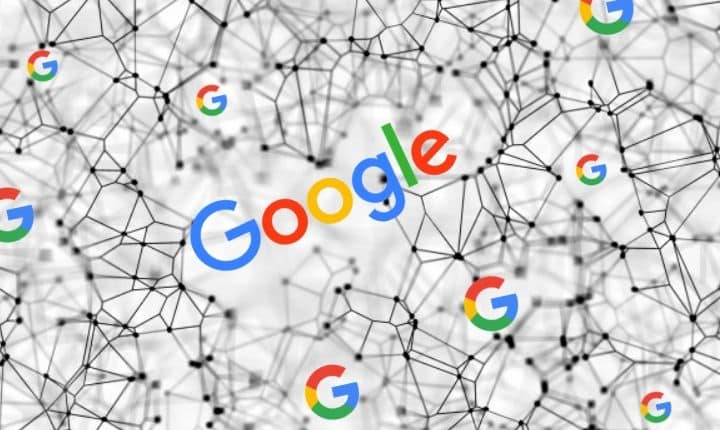Every morning, millions of us open Google without a second thought. We type, scroll and click whatever catches our eye. But behind that casual ritual lies something deeper. What if your Google homepage isn’t just a collection of random stories, but a mirror reflecting your inner world, your habits, and even your emotions?
That personalized feed of headlines, tips and think pieces is more than a convenience feature. It is a digital portrait, painted by your clicks, searches and silent interests. Without ever meeting you, Google quietly learns your rhythm, your curiosities and your mindset.
How Google Knows
It starts with data, lots of it. Google collects signals from everything you do in its ecosystem: your search history, YouTube activity, location data and even the times you browse. Every click, pause, or scroll is like a brushstroke on your digital canvas.
Watch a video about mental health and Google notes your interest in emotional awareness. Read about ancient philosophy or self-improvement and it senses an appetite for meaning and growth. Bit by bit, the algorithm connects these patterns until your homepage begins to reflect you.
This is not guessing. It is careful observation, quiet, constant, and accurate enough to anticipate what you might want before you even ask.
My Homepage, My Reflection
I looked at my own homepage today. My top three stories were:
“University psychology professor: If you talk to yourself out loud, you are probably this type of person.”
“Greek philosopher Socrates redefined the divine and the good.”
“7 ways to live in the present moment.”
At first glance, they seem random, psychology, philosophy, mindfulness, but they tell a quiet story about my current mindset. They hint at a fascination with thought, awareness, and the deeper layers of human behavior, a search for understanding, balance and meaning amid life’s rush.
Google does not just track what you look for; it traces what you linger on, revisit and skip. Over time, it shapes an eerily accurate version of your inner self, your questions, moods and hopes.
Your Curiosity, Your Compass
Your Google feed acts like a compass, pointing to what fascinates you most. For some, it is football scores or fashion trends. For others, world politics, climate change, or self-help. Each article is a breadcrumb leading back to your inner life.
If your feed overflows with productivity hacks or wellness tips, perhaps you have been thinking about structure and self-growth. Endless travel guides might indicate a craving for adventure. Relationship think pieces could suggest your heart is in reflection. Your homepage does not just track your curiosity; it translates it.
Your Digital Rhythm
Google also learns your rhythm, how your energy flows throughout the day. Morning feeds full of workouts or motivation show your desire for an early boost. Deeper reads or creative stories at night hint at reflective hours. In its quiet way, Google maps your daily tempo.
The Emotional Echo
Your homepage can mirror your emotions. Google does not feel your moods, but it recognizes patterns. Mindfulness or healing content may indicate a search for calm or clarity. Light, humorous stories might signal a need for relief or joy. Even what you avoid matters, as the algorithm listens to silence as much as activity, adjusting your feed to match your emotional state.
A Glimpse Into Your Aspirations
What appears is not only about who you are, it also whispers who you want to be. Articles on leadership, success, or personal growth suggest a hunger for progress. Travel stories reflect a longing for freedom. Inspirational pieces mirror quiet ambitions you have not yet voiced.
Looking back at my top stories, I realized they were not just about psychology or philosophy, they were about becoming. They revealed a desire to understand myself more deeply, live with intention, and seek meaning even in downtime. Our feeds often know our direction before we do.
Your Digital Comfort Zone
There is a danger. The more Google learns about you, the more it feeds you what you already like. Your homepage can become an echo chamber, safe, familiar and predictable. Growth comes from exposure, not repetition. Click on something that challenges you. Read what you would normally scroll past. Curiosity thrives when it stretches, not when it stays comfortable.
Your Silent Biography
Your Google homepage is more than an algorithmic feed. It is a silent biography written in pixels, updated daily by your curiosity. Each article adds a line, each search a paragraph. Over time, it tells the evolving story of your interests, priorities and personal growth.
It knows when you are curious, restless, searching for meaning or simply trying to feel grounded. It does not judge; it reflects. And sometimes, it does not just show who you are, it shows who you want to be.
In the End
Next time you open your Google homepage, pause before you scroll. Look at the stories, the tone, the patterns. They are not random suggestions, they reflect your inner world, mapped in real time.
They tell you where your attention has wandered, what your heart has been drawn to and what kind of person you are quietly becoming.
So ask yourself: what does your Google homepage say about you today? And more importantly, are you happy with what it is saying?


